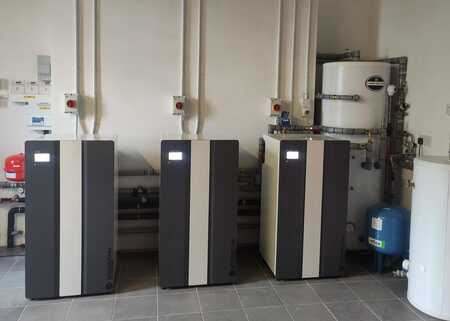What Size Are Solar PV Panels?
Switching to solar energy comes with a myriad of benefits; from significantly lowering energy bills and decreasing reliance on traditional energy sources, to minimising carbon footprints. But, with a number of different solar PV panel sizes and types on the market, how do homeowners and businesses in West Dorset and East Devon decide which system is right for them to achieve the best return on investment?
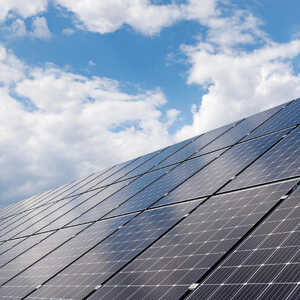
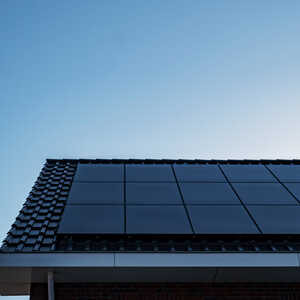
The different solar PV panel sizes available
Most solar PV panels for residential and commercial use have similar dimensions. Standard solar panels are typically around 1.7 meters by 1 meter (approximately 1.7 m² in surface area). These panels generally come in different configurations, including 60-cell, 72-cell, and 96-cell designs.
60-cell panels
These are the most common type used in residential settings. They typically measure about 1.7 m by 1 m and can produce around 270 to 330 watts of power, depending on their efficiency.
72-cell panels
Slightly larger, these panels measure about 2 m by 1 m and can generate between 350 and 400 watts. They are often used in both residential and commercial installations.
96-cell panels
These are less common but are higher efficiency panels measuring about 1.7 m by 1.3 m. They can produce between 450 and 500 watts of power, making them ideal for areas with limited installation space.
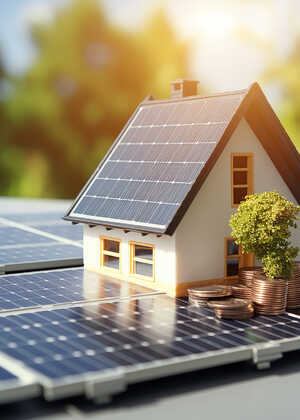
What size solar PV panel do I need?
In residential settings, roof-mounted solar PV panels are the most common. These panels fit well on the rooftops of homes, making use of otherwise unused space to generate electricity. The average UK household may install a system ranging from 3kW to 4kW, which typically requires about 10 to 12 panels if using 60-cell panels. This setup can produce enough electricity to cover a significant portion of the household's energy needs, thereby reducing electricity bills and the home's carbon footprint.
For a household of 1-2 people, a 2 kW system with about 6-7 panels (60-cell) and 12 m² of roof space is suitable.
For 2-3 people, a 3 kW system needing around 10-11 panels (60-cell) and 18 m² of roof space is ideal.
For a household of 3-4 people, a 4 kW system with 13-14 panels (60-cell) and 23 m² of roof space is typically sufficient.
Larger households of 4-5 people may require a 5 kW system, which involves about 16-17 panels (60-cell) and 28 m² of roof space.
Commercial properties
For commercial properties, the decision to go with larger panels or a higher number of standard-sized panels depends on the available roof space and the specific energy needs of the business. Larger panels, like 72-cell or 96-cell models, might reduce installation time and costs by covering more area with fewer units, but they require more structural support. Commercial buildings often have more roof space available, allowing for installations that can significantly offset energy costs and reduce the business's carbon footprint.
Have you considered ground-mounted solar PV panels?
While roof-mounted panels are common, ground-mounted solar PV panels provide an alternative that is particularly useful in rural areas or on properties with large, unused land areas. Floor-mounted solar PV panels offer flexibility in orientation and tilt, which can optimise energy production by capturing the maximum amount of sunlight throughout the year. These installations can range from small systems for homes to large solar farms generating several megawatts of power.


Considerations for panel size and installation
When selecting solar PV panels, it's essential to consider the available installation space and the system's intended energy output. Larger panels or systems with higher wattage can produce more electricity, which is beneficial for homes with high energy consumption or businesses looking to cut down on utility costs. The weight of the panels is another consideration, especially for roof-mounted systems. Standard panels weigh around 18 to 25 kilograms each. Ensuring that the roof structure can support this weight is crucial for a safe and successful installation.
How can we help?
Solar energy is a sustainable and cost-effective solution for reducing energy bills and lowering carbon footprints, whether for residential homes or commercial businesses. With advancements in solar technology, the efficiency and variety of solar PV panels continue to improve, offering more options to meet diverse energy needs. By considering the size and type of panels that best fit your property, you can maximise the benefits of solar energy and contribute to a greener future.
Evergreen Renewable Energy is proud to be an MCS-certified installer of solar PV panels, covering East Devon and West Dorset, ensuring that our equipment meets high standards of performance and that our installers are technically safe and competent. If you’re interested in reaping the benefits of solar PV panels in your home, please get in touch to arrange a free assessment of your property.
You might also be interested in...
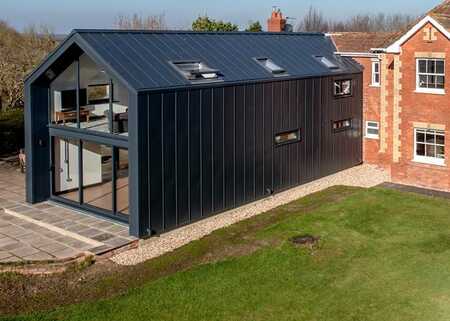
Ground Source Review: Green Gables Family Home30/03/2021
Green Gables is a family home in Somerset, consisting of two attached buildings. Looking to save money on heating bills and reduce their carbon footprint, the homeowner wanted to rule out their reliance on oil heating.
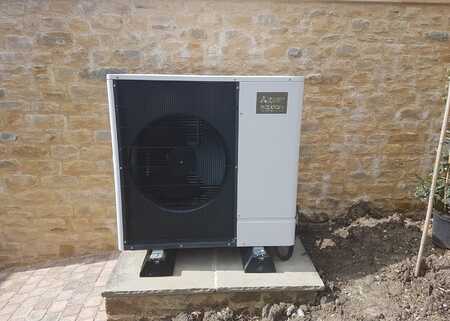
Boiler Upgrade Scheme - What you Need to Know 12/05/2022
Investing in low-carbon heating solutions is the most effective method of securing an ecologically sustainable future, and this new government scheme will encourage property owners to replace their existing fossil fuel heating with more efficient, low-carbon systems.

Can I heat a swimming pool with renewable energy?06/12/2022
Many people are turning to renewable energy sources, such as solar power, to heat their pools in an effort to reduce their carbon footprint and save money on energy costs, and there are a number of different ways to heat a swimming pool using renewable energy.
Posted on August 14th 2024

